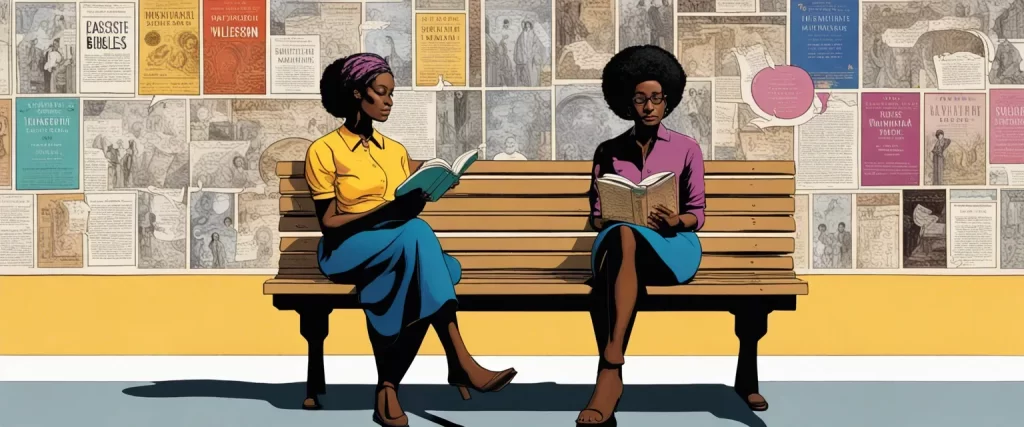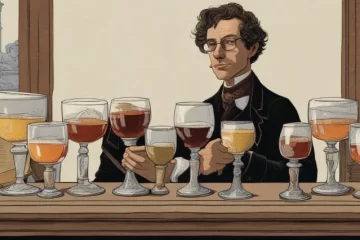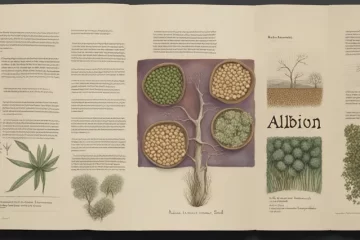Caste: Practical Steps Towards Social Change – Isabel Wilkerson’s Inspiring Read

In her groundbreaking book “Caste: The Origins of Our Discontents,” Pulitzer Prize-winning author Isabel Wilkerson delves into the intricate web of social hierarchies that permeate societies, both historically and present-day. Through riveting storytelling and meticulous research, Wilkerson uncovers how the specter of caste quietly infects every aspect of our lives, perpetuating systemic injustices and hindering progress towards a more equitable world. In this article, we explore the profound implications of Wilkerson’s work, highlighting its power to ignite social change and challenge our ingrained perceptions about society, race, and the human experience.
What is Social Change
Social change refers to the alteration or transformation of social institutions, behaviors, attitudes, and relationships within a society or community. It is a broad concept that encompasses a range of social, economic, cultural, and political changes that can occur at various levels, from individual to global.
Social change can be driven by a variety of factors, including technological advancements, economic developments, political movements, cultural shifts, and environmental changes. It can be intentional or unintentional, gradual or rapid, and can have both positive and negative consequences.
Examples of social change include the abolition of slavery, women’s suffrage movement, civil rights movement, LGBTQ+ rights movement, environmental activism, technological innovations, globalization, and the advent of social media, among others. These changes often challenge existing norms, power structures, and inequality, aiming to create a more just, inclusive, and progressive society.
Why is Social Change Important to Us
Social change is important to us for several reasons:
1. Improving quality of life: Social change seeks to address social injustices, inequalities, and systemic problems that hinder individuals and communities from accessing equal opportunities and enjoying a high quality of life. It aims to create a more equitable society where everyone can thrive.
2. Promoting human rights: Social change advocates for the protection and promotion of basic human rights such as freedom, equality, and dignity. It seeks to challenge oppressive systems and practices that violate these rights and work towards building a more just and inclusive society.
3. Fostering social cohesion: Social change initiatives promote dialogue, understanding, and acceptance across different social groups, fostering a sense of community and togetherness. It addresses issues such as discrimination, racism, and prejudice, aiming to create a society where everyone is treated with respect and dignity.
4. Addressing global challenges: Social change is crucial for addressing global challenges such as climate change, poverty, and inequality. It encourages collective action and mobilization to tackle these issues, promoting sustainable development, and creating a better future for all.
5. Empowering individuals and communities: Social change empowers individuals and communities, giving them a voice, and allowing them to actively participate in decision-making processes that affect their lives. It promotes civic engagement, advocacy, and mobilization, enabling people to create positive change in their own lives and in society as a whole.
Overall, social change is important to us as it strives to create a fairer, more inclusive, and sustainable world, where every individual has the opportunity to live a fulfilling and meaningful life. It challenges the status quo, questions existing power structures, and inspires collective action towards a better future.
Unlocking Social Change from Caste

Caste Introduction
Caste: The Origins of Our Discontents” by Isabel Wilkerson explores the history and impact of caste systems, particularly in the United States, India, and Nazi Germany. Drawing parallels between caste and race, the book examines how social hierarchies and discrimination are deeply ingrained in society, influencing opportunities and experiences based on one’s caste or race.
Wilkerson argues that the caste system shapes every aspect of life, from interpersonal relationships and politics to economics and health care. She delves into the dehumanization, segregation, and violence endured by marginalized communities, emphasizing the long-lasting effects of caste-based injustices.
The book also highlights the intersections of caste and other forms of oppression, such as sexism and ableism. It asserts that liberation and equality can only be achieved through dismantling the hierarchical caste structure, urging readers to confront their own biases and work towards a more equitable society.
Through extensive research, personal anecdotes, and historical analysis, “Caste” challenges readers to critically examine the systemic forces that perpetuate inequality and offers a path towards a more inclusive and just future.
Social Change Methods
In the book “Caste: The Origins of Our Discontents” by Isabel Wilkerson, the author discusses various methods of social change that can address and tackle the issues related to caste systems and racial inequalities. Some of the methods mentioned in the book include:
1. Education: Wilkerson emphasizes the importance of education as a means to dismantle caste systems. By providing equal access to education and promoting inclusive curriculum that highlights diverse perspectives, we can challenge and change the deep-rooted beliefs and biases associated with caste.
2. Grassroots Movements: The book explores the power of grassroots movements in bringing about social change. Wilkerson highlights the Civil Rights Movement in the United States as an example of collective action and protest that led to significant advancements in dismantling the caste system.
3. Policy Reform: Effective policy reforms play a crucial role in addressing caste systems. The book discusses the importance of passing and enforcing policies that promote equality, justice, and fairness. By implementing policies that eliminate discrimination and provide equal opportunities, societies can work towards dismantling caste.
4. Inter-Caste Collaboration: Wilkerson stresses the importance of people from different castes coming together to challenge the existing system. By building alliances across caste lines, individuals can break down the divisions and work towards creating a more inclusive society.
5. Cultural and Media Representation: The media and cultural representations influence societal beliefs and biases. Wilkerson explains how accurate and diverse representation in books, movies, TV shows, and other media can help challenge stereotypes and dismantle the caste system by promoting empathy and understanding.
It’s important to note that these are some of the methods highlighted in the book, but there may be more approaches discussed. Reading the book in detail will provide a comprehensive understanding of Wilkerson’s exploration of social change methods.
Caste Quotes
Caste quotes as follows:
1. “Caste is the granting or withholding of respect, status, honor, attention, privileges, resources, benefit of the doubt, and human kindness to someone on the basis of their perceived rank or standing in the hierarchy.”
2. “We live with the pain of what caste creates well before we even know there is such a thing.”
3. “Caste, a system of social stratification determined by birth, is the lens through which we see each other. It is the hidden infrastructure of our lives, and it is a powerful tool for understanding the human divide.”
4. “The distinction between dominant and subordinate castes is sometimes said to be about skin color, but caste is much more than skin color.”
5. “Caste is insidious and therefore powerful because it is not hatred, it is not necessarily personal. It is the worn grooves of comforting routines and unthinking expectations, patterns of a social order that have been in place for so long that it looks like the natural order of things.”
6. “In caste societies, grace and graciousness were associated with the higher castes alone, as if birth ordained benevolence and refinement.”
7. “Caste restricts the freedom of everyone within its system. If you live outside the dominant caste, you are in the grip of forces that seek to demean you and keep you down in a subservient place.”
8. “The hierarchy of caste is not about feelings or morality. It is about power—which groups have it and which do not.”
9. “Caste is about respect, authority, and assumptions of competence—in other words, who gets to tell the story of who we are and why we are here, what is and what is possible, who can be what and who cannot.”
10. “Caste—and we—must be seen for what we are, a system so deeply rooted, so bred into the very fabric of the society, that it is nearly impossible to imagine anything else.”

More Books About Caste by Isabel Wilkerson
Book Recommendation: Exploring Caste through Diverse Perspectives
1. Inferior: How Science Got Women Wrong and the New Research That’s Rewriting the Story” by Angela Saini:
Angela Saini provides an eye-opening exploration of gender bias in science, challenging the notion that women are biologically inferior. Drawing on extensive research and interviewing leading scientists, Saini exposes the flawed assumptions and societal prejudices that have perpetuated gender inequalities across cultures. This captivating book will broaden your understanding of how caste and gender intertwine in shaping social structures.
2. Country Driving: A Chinese Road Trip” by Peter Hessler:
In this immersive account, Peter Hessler embarks on a road trip through China, documenting the transformations in the country’s economic and social landscape. While not explicitly about caste, Hessler’s encounters with different social classes and his observations of the profound disparities offer insights into the complexities of caste-like systems and their impact on society.
3. The Coddling of the American Mind: How Good Intentions and Bad Ideas Are Setting Up a Generation for Failure” by Greg Lukianoff and Jonathan Haidt:
Examining the issues surrounding the current generation, authors Greg Lukianoff and Jonathan Haidt delve into the consequences of overprotective approaches and the stifling of free speech on university campuses. Although focusing primarily on American society, this book explores the idea of hypersensitivity and identity politics, shedding light on how these concepts relate to caste dynamics in other cultural contexts.
4. “Untouchables: My Family’s Triumphant Journey Out of the Caste System in Modern India” by Narendra Jadhav:
Providing a personal account of life in the Dalit community, Narendra Jadhav’s memoir exposes the harsh reality of caste discrimination in India. Jadhav’s family’s story is interwoven with the broader historical context, offering an intimate portrayal of the struggles faced by marginalized communities and their quest for social justice.
5. “Ants Among Elephants: An Untouchable Family and the Making of Modern India” by Sujatha Gidla:
Sujatha Gidla shares her own experiences growing up as a Dalit in India, weaving personal anecdotes with historical analysis. With nuanced storytelling, Gidla highlights the intersection between caste, politics, and economic disparities, providing valuable insights into the legacy of India’s caste system and the resilience of those striving for equality.
While these books do not directly address Isabel Wilkerson’s “Caste,” each one offers a unique perspective on caste-like systems, exploring the interconnectedness of different social hierarchies. By reading these diverse narratives, you’ll gain a multifaceted understanding of caste dynamics globally and develop a broader outlook on the impact of discrimination and inequality.



22 Comments
Unlocking Success: Why Outliers by Malcolm Gladwell is an Authority - singleread.com · 12/05/2023 at 14:17
[…] mainstream feminist movements and highlights the importance of intersectionality—examining how race, class, and gender intersect and impact marginalized women. This book powerfully resonates with […]
Jane Eyre: A Feminist Classic · 12/07/2023 at 14:09
[…] seeks to create a more just and equitable society for all individuals, regardless of their gender, race, sexual orientation, disability, or social […]
Frida:Examine Feminism in Hayden Herrera's Biography · 12/07/2023 at 15:21
[…] discrimination does not exist in isolation from other forms of oppression, such as those based on race, class, sexual orientation, or ability. This perspective acknowledges that women with different […]
Unpacking White Fragility: A Social Psychology Review of Robin DiAngelo's Book - singleread.com · 12/07/2023 at 17:10
[…] and diversity trainer, argues that white people often have defensive reactions when discussing race and racism, and this defensiveness hinders discussions about systemic racial […]
Nickel and Dimed by Barbara Ehrenreich: A Critical Perspective on Social Class in America - singleread.com · 12/11/2023 at 09:39
[…] the compelling narrative presented by Ehrenreich, examining the systemic issues that perpetuate social inequality and the pressing need for a more egalitarian society. Brace yourself for an unfiltered journey into […]
Historic Spotlight: Unraveling Societal Crisis in 'Upheaval' by Jared Diamond - singleread.com · 12/14/2023 at 13:17
[…] offers a provocative exploration of America’s caste system, drawing parallels between caste, race, and social hierarchies. Through extensive research and personal narratives, Wilkerson sheds light […]
Exploring the Social Psychology of Morality: A Must-Read Review of The Righteous Mind - singleread.com · 12/22/2023 at 12:29
[…] thought-provoking book explores the concept of white fragility and its impact on discussions about race. Building on the ideas presented in “The Righteous Mind,” this book examines how moral […]
Inspiring Minds: Why 'Born a Crime' by Trevor Noah is a Must-Read - singleread.com · 12/25/2023 at 17:17
[…] book provides a thoughtful and humorous look into Noah’s life, exploring themes of identity, race, and […]
Unveiling the Shadows: A Compelling Book on Mental Health - Hidden Valley Road by Robert Kolker - singleread.com · 12/31/2023 at 00:00
[…] through adulthood. Mental illnesses are common and can affect anyone, regardless of age, gender, race, or socioeconomic status. However, mental health disorders are treatable, and individuals with […]
Efforts That Transcend: Discover the Timeless Classic Of Mice and Men - singleread.com · 01/05/2024 at 10:07
[…] adversity and discrimination: Characters like Crooks and Candy face discrimination due to their race and disabilities, respectively. They make efforts to overcome these barriers and assert their […]
Revolutionary Lessons: Why Animal Farm is Essential Reading - singleread.com · 01/05/2024 at 10:08
[…] been catalysts for profound change. They have emerged in response to oppressive regimes, widespread social inequality, economic crises, or political corruption. Revolutions are often driven by a desire for liberty, […]
Pride and Prejudice: Feminism at Its Core · 01/05/2024 at 16:35
[…] social commentary, and memorable characters, Pride and Prejudice explores themes of love, marriage, social class, and personal growth. The novel concludes with Elizabeth’s and Darcy’s eventual […]
Exploring the Terrifying Realities of Infectious Diseases: A Must-Read Book in Medicine - The Hot Zone by Richard Preston - singleread.com · 01/08/2024 at 10:07
[…] 5. We’re in the middle of the matter that could wipe out the human race. […]
Exploring the Enigmatic: Mysteries of Our Body in Survival Of The Sickest - singleread.com · 01/15/2024 at 15:58
[…] 6. Sickness and disease have shaped our evolution, leading to a more resilient human race. […]
Navigating a World in Flux - A Book Recommendation: '21 Lessons for the 21st Century' and Its Insights on Social Change - singleread.com · 01/16/2024 at 00:02
[…] It works to eliminate discrimination, prejudice, and systemic inequalities based on factors such as race, gender, socioeconomic status, and sexual orientation. By promoting equality and justice, social […]
The Blank Slate: Decoding the Mysteries of Our Remarkable Bodies - singleread.com · 01/19/2024 at 16:20
[…] To acknowledge human nature, and that it differs across individuals and sex, race, and culture, is an honest, necessary, and multifaceted way of understanding who we […]
Promoting Gender Equality: Discover the Eye-Opening Book 'Half the Sky' - singleread.com · 01/19/2024 at 16:31
[…] In “Hood Feminism,” Mikki Kendall explores the intersections of race, class, and gender, shedding light on the experiences and struggles of marginalized women. Kendall […]
Understanding the Power of Situations: A Social Psychology Review of The Lucifer Effect - singleread.com · 01/21/2024 at 00:02
[…] behavior, forcing readers to confront uncomfortable truths about privilege, power dynamics, and systemic oppression. Through a careful examination of whiteness and racial dynamics, DiAngelo challenges readers to […]
Supercharge Your Investments with The Millionaire Fastlane - singleread.com · 01/26/2024 at 13:52
[…] and real-life examples, DeMarco provides practical advice for anyone looking to escape the rat race and build a life of financial abundance. He emphasizes the importance of taking calculated risks, […]
On Immunity: Unveiling the Intricacies of Body Health - singleread.com · 01/30/2024 at 00:01
[…] taken without her knowledge and used for medical research. The book delves into issues of ethics, race, and privacy in the field of […]
A Planet of Viruses: Unlocking the Secrets of The Fun Encyclopedia - singleread.com · 02/01/2024 at 00:02
[…] and influencing our evolution throughout history. Additionally, he examines the constant arms race between viruses and our immune systems, shedding light on the ongoing struggle to control […]
Between Parent and Child: Nurturing Strong Bonds through Parent-Child Communication - singleread.com · 02/02/2024 at 00:02
[…] Solutions for Raising Creative, Engaged, Happy Kids in Today’s Hectic World” by Kristen Race – This book combines mindfulness practices with parenting techniques, offering strategies to […]